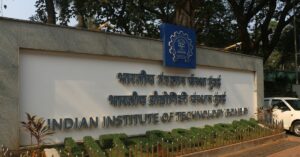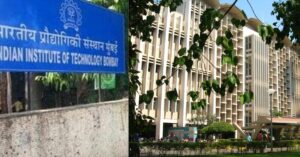Meet 2 Friends Who Are Helping Women From ST, SC & OBC Backgrounds Find Jobs in MNCs
Through their fellowship programme, the Esther Foundation has helped women from Bahujan (SC, ST and OBCs) communities land jobs in global MNCs like TCS, Wipro, Accenture and Genpact, among others.
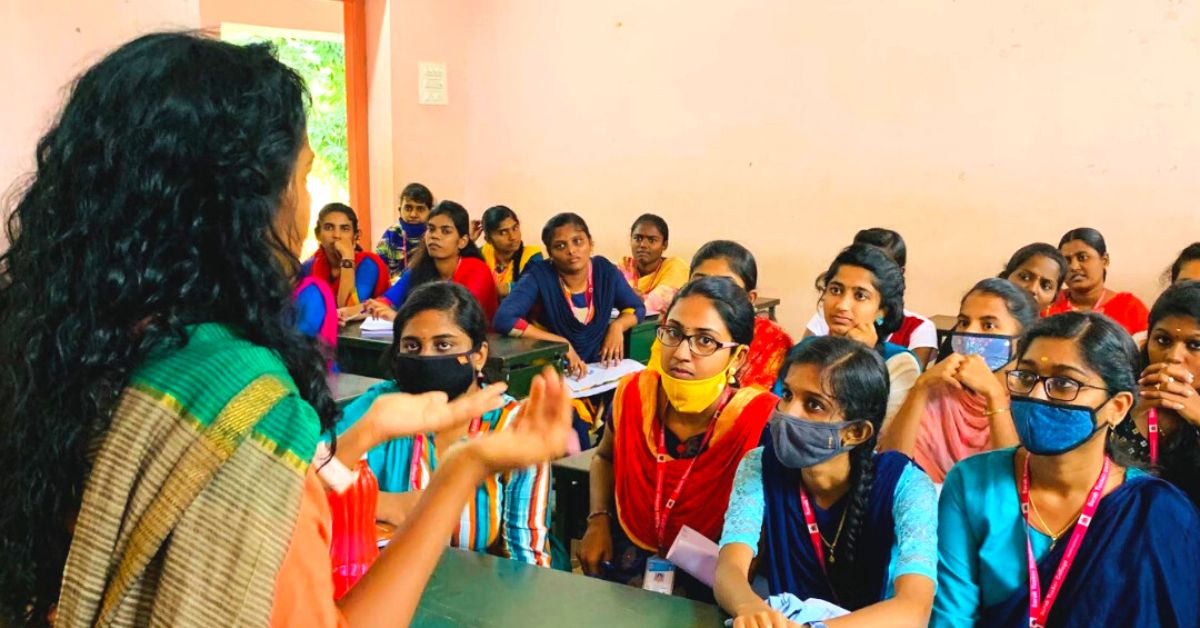
Rachna Vuthunur currently works as an application development associate at Accenture, a global consultancy firm. Understanding where Rachana came from and the plethora of hurdles that she had to overcome in life, it’s impossible not to admire her current standing in life.
A native of Nizamabad in Telangana, Rachana lost her father when she was a child. It was her mother who took on the mantle of supporting the family with a low-paying job at a private school. Unfortunately, while Rachana was pursuing a BSc in computer science, her mother was diagnosed with a cataract.
“After my mother was diagnosed and couldn’t work anymore, I started home tuitions for children in our locality to support the family. This ensured that the family had some money coming in for our day-to-day needs,” says Rachana speaking to The Better India.
In 2021, as Rachana was proceeding towards completing her graduation, she had no inkling of the career opportunities that lay before her. Thankfully, through a placement cell in her college, she discovered the Esther Foundation — a non-profit founded by Agneta Venkatraman and Ravali Pidaparthi, which helps women studying in their final year of college from marginalised communities to obtain quality employment. She would proceed to apply for their five-month fellowship programme, which currently remains free of cost.
“The fellowship focused on equipping us to get into the job market. We were trained in basic skills like communication, resume building, cover letter writing, and LinkedIn profile building,” says Rachana, adding, “I can confidently say that the fellowship at Esther Foundation played an important role in me cracking the interview and landing this job.”
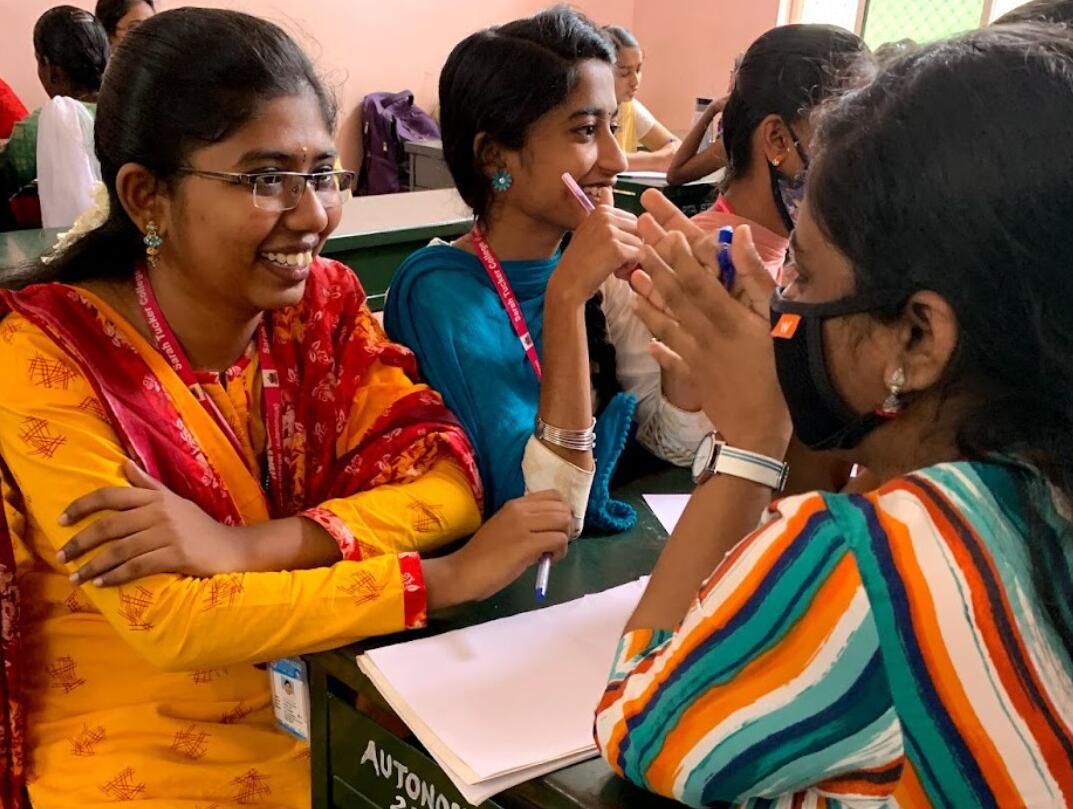
More than just career building
To understand why Agneta Venkatraman and Ravali Pidaparthi decided to embark on this journey, it’s instructive to understand where they’re coming from.
Although both Agneta and Ravali are mechanical engineers by training, they’ve undertaken vastly different paths to get where they are today. Largely growing up in the Middle East and the United States, Agneta worked as an engineer for some of the world’s largest firms.
Simultaneously, Agnetha was also volunteering for organisations providing relief to victims of human trafficking, particularly women. After doing this volunteer work for years, she wanted to work in the social sector full-time solving problems.
She proceeded to obtain an MBA from Stanford University (2017-19), came back to India, and joined an organisation working in the health sector called Noora Health. It was towards the end of 2019 when Agneta first met Ravali in Bengaluru and developed a close friendship over time.
Ravali, meanwhile, was born and raised in Hyderabad. Academically bright, she studied mechanical engineering in college but was soon disillusioned by the social system around her.
“During the four years of college, I faced very intense forms of sexism and casteism. Rampant discrimination discouraged me from continuing in the engineering line of work and decided to spend more time understanding where my real interests lie. Fortunately, I came across Teach for India and joined their staff in early 2015,” recalls Ravali, speaking to The Better India.
Following her two-year stint at Teach For India, she underwent a post-graduate program at the Indian School of Development Management (ISDM). Over the next three years, Ravali worked with another non-profit called Udhyam Learning Foundation. There, she worked closely with women street vendors and small shop owners, enabling them to grow their businesses.
“Upon meeting each other, both of us realised that we shared similar value systems and a passion for solving issues of gender disparity in India,” she says.
Before formally registering Esther Foundation in March 2021, Ravali and Agneta spoke to about 100 women from small towns, who were first-generation college-goers. Conducting regular interviews with them over the weekend from July 2020 onwards, both women began understanding their world views, challenges and aspirations in the middle of the first wave of the pandemic. Before it became a full-fledged non-profit, it was a project of sorts they would do over the weekend.
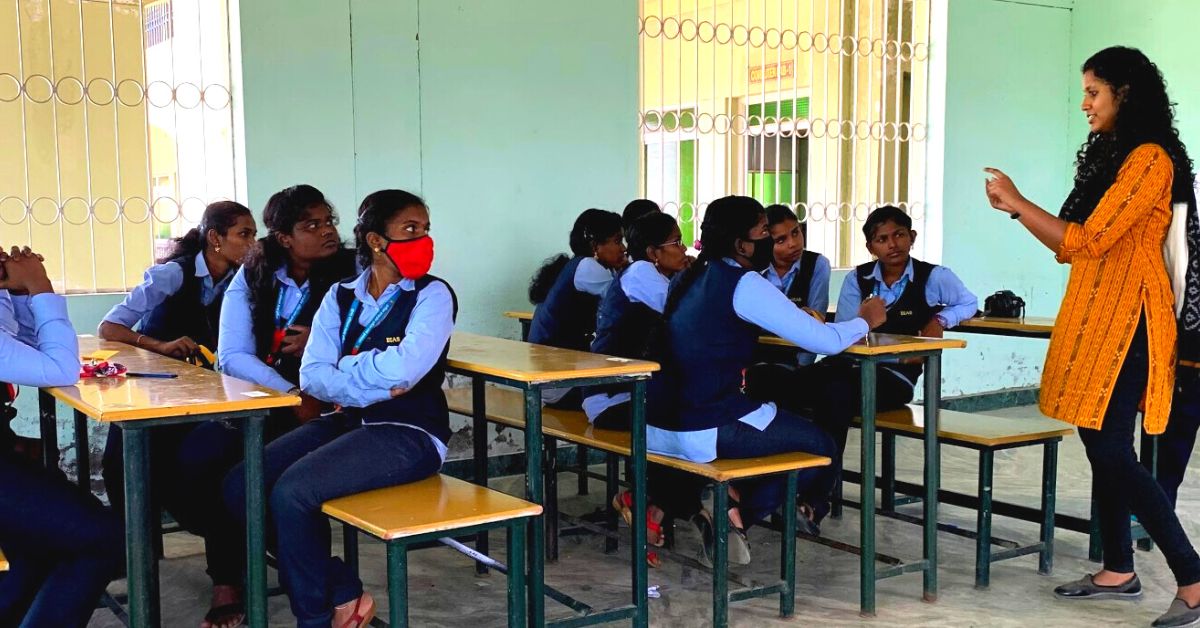
Mission statement
According to this Reuters report, “India’s female work participation rate was just 25% for 2021, according to federal government data, among the lowest for emerging economies.”
“We want women to have more voice and choice in their lives. This is manifested through making informed career choices and making those aspirations a reality. We work with women from very disadvantaged backgrounds in small towns and villages across South India. We started with Tamil Nadu, but are primarily working with college students in Telangana. These are first-generation college-goers, coming from farming or daily wage working family backgrounds,” explains Ravali.
These women have already crossed a lot of social and economic barriers in studying at these colleges. But once they have access to college education, they have no idea of what to do next because these women have not seen the results of what happens after they graduate in their families or extended kin. Esther looks to enable these women with different tools and resources.
Esther fellowship program
Currently, Esther runs a five-month fellowship programme for these women. There are four main foundations on which they have built the fellowship:
1) Career readiness and understanding: They help the women figure out what career pathways are available to them based on their education degree.
2) Life skills: “This includes everything from how one negotiates space in their family to their career and workplace. We also look to build their self-confidence which means understanding what are the beliefs they have about themselves and which of them limiting or enabling. In addition, we also help them navigate the dynamics of communication, gender and decision-making,” says Agneta.
3) Mentorship: “We really believe that these young women need role models. If they see that there are other women who are pursuing different kinds of careers and are able to thrive in them in spite of all the socio-economic obstacles, they will start to believe that they can do the same. We connect these young women to slightly older women in their late 20s and early-to-mid 30s. We call this the ‘Mentor Akka Programme’ since Akka in Telugu, Kannada and Tamil roughly means ‘elder sister’. We bring in volunteers who’ve made a career path for themselves and get them to mentor these young women,” says Ravali.
4) On-the-job-like project experience: “We answer questions of what it means for a young college student to join the workforce and provide them with practical exposure to what it looks like. A lot of us who went to college in tier-1 cities or top institutions would have undergone internships and group project experiences. With very under-resourced colleges, women don’t have access to these kinds of experiences. We create simulated project environments where they’re able to work in teams, communicate with a manager, and get a real sense of what it means to work in a professional work environment,” she says.
After hiring trainers experienced in working with young people in employability and life skills, who are also bi-lingual, Esther proceeded to mentor these young women. “A program associate, a trainer, and I have written the curriculum and training modules in-house,” she says.
In their most recent batch, Ravali claims to have enrolled 170 students after a selection process, of which 102 attended regularly and graduated from the programme.
“We are very strict about who can graduate from our programme. As per the data we collected in early November 2022, about 35% to 40% of women were employed. About 50% of the women who graduated are looking for further higher education opportunities. Meanwhile, about 10% to 15% of them are still looking for the right job opportunities,” claims Ravali.
The first batch with more than 100 college women has been able to use what they learned to find jobs in major companies like TCS, Wipro, Accenture and Genpact, among others. Esther has so far completed three fellowship programs in 2021 with 40 women, and a fellowship program in 2022 with more than 100 women from marginalised communities.
“Our most recent batch did their fellowship programme online. We had a partnership with a group of colleges under the Telangana Social Welfare Residential Educational Institutions Society, a state government-funded institution. This group of colleges specifically cater to women from Bahujan communities, including Dalits, Adivasis and Other Backward Classes (OBCs). We had a partnership with around 30 such colleges across Telangana,” says Ravali.
What these students did was congregate in computer labs in these colleges and join the fellowship programme. “We coordinated this entire endeavour with coordinators within these colleges. They helped us organise these students, share links with them and helped them with whatever digital needs they required. We have concrete plans of taking this programme offline. However, since we started during the pandemic, we began virtually,” says Agneta.
“Our long-term objective is to make our programmes hybrid (combination of online and offline mentorship), and are moving towards that. For the next cohort of women we are mentoring in January 2023, out of the 40 hours spent on sessions, 25 hours will be in-person and 15 hours online. We want to retain the online component because it helps students get familiarised with how to use online tools like Zoom, Google Docs, etc.,” she adds.
For the time being, their mentorship program is free. They want to keep it this way till they reach a ‘steady state’ in terms of programme design. After all, the cost of the programme for each student is approximately Rs 15,000-20,000. In the future, however, Esther will ask them to pay a nominal fee so that they retain some commitment to completing this programme.
Standing apart
Most career-readiness programmes in India don’t consider women as part of their core audience or participants. What happens if you design such programmes for women?
“Aspects like migration, talking to your family, and societal norms start featuring a lot more versus if you don’t have women at the centre of your programme design. At Esther, we consistently ask ourselves how we look at changing conventional norms. We wear the gender lens while teaching them life skills and having conversations. For example, we even discuss what it means to have a greater voice in choosing a life partner,” says Ravali.
Take the example of Shirisha Medaboina, a native of Ankushapur on the outskirts of Hyderabad. She lost her father at the age of six. Her mother supported the family by working as a housemaid. Despite all the hurdles, Shirisha became the first member of her family to attend college.
“Esther’s fellowship helped me become confident about landing a job. Ravali Akka is more like a mentor to me now. She motivated me to go ahead and apply for the role at Genpact, a global MNC. I had many doubts but she patiently explained everything to me, gave me practical experience and played a big role in helping me land the job,” says Shirisha.
Although Shirisha quit her job at Genpact a couple of months ago following a personal tragedy, she is currently working on a “dream project” of starting her own venture.
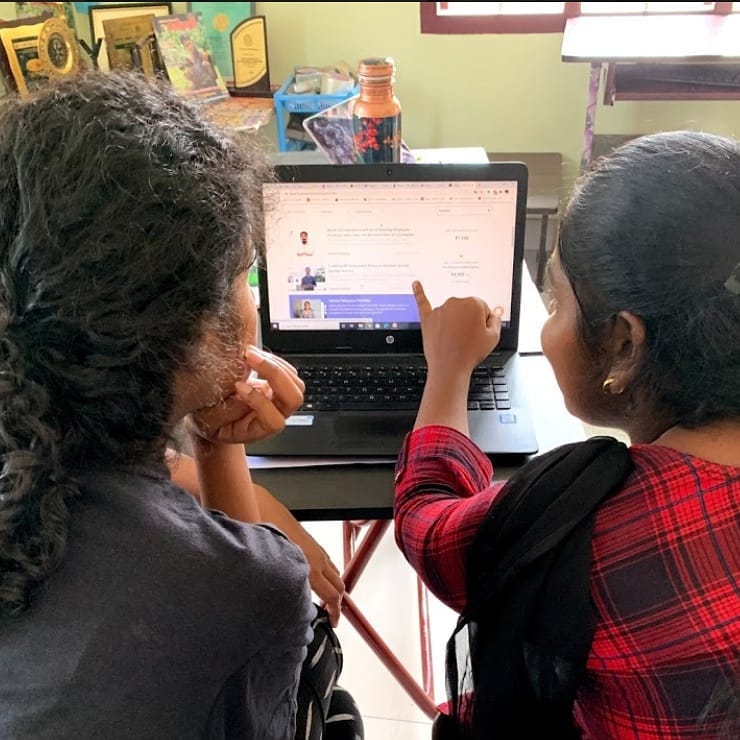
To support their programme, Esther is currently running a fundraiser on Milaap, an online crowdfunding platform. Starting out, they received funding from a variety of incubators working in the social sector like Nudge, Unlimited India, etc.
“A lot of our initial funding came from incubators. Now, we are relying on individual donors more than institutional ones because of the freedom it gives us to pursue our goals,” says Ravali. If you found our stories insightful, informative, or even just enjoyable, we invite you to consider making a voluntary payment to support the work we do at The Better India. Your contribution helps us continue producing quality content that educates, inspires, and drives positive change. Choose one of the payment options below for your contribution- By paying for the stories you value, you directly contribute to sustaining our efforts focused on making a difference in the world. Together, let’s ensure that impactful stories continue to be told and shared, enriching lives and communities alike. Thank you for your support. Here are some frequently asked questions you might find helpful to know why you are contributing?

(Edited by Pranita Bhat)
This story made me
-
97
-
121
-
89
-
167





